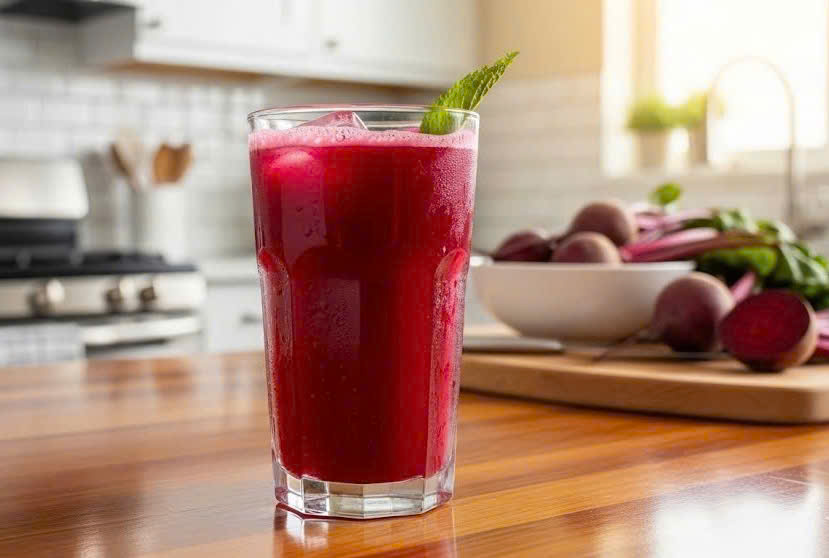Answer:
Beets are rich in natural nitrates, which the body converts into nitric oxide. This compound helps dilate blood vessels, improve blood flow, and reduce pressure on artery walls, thereby helping to lower blood pressure. The potassium in beets also plays a role in balancing electrolytes, assisting the kidneys in eliminating excess sodium, and maintaining stable blood pressure.
For individuals in the early stages of hypertension, drinking approximately 250 ml of fresh beet juice daily can help slightly lower blood pressure readings. However, this effect is supportive and cannot replace prescribed medication. Patients should continue to follow their doctor's treatment plan.
You can consume beets in various forms: juiced, boiled, steamed, or in soups. Combining them with carrots, apples, or oranges can improve the taste and add vitamins. Avoid excessive consumption, as too much beet can cause an excessive drop in blood pressure for those on medication or increase the risk of kidney stones in individuals prone to them due to the high oxalate content. Young children under the age of one should also avoid beets due to the risk of methemoglobinemia (a blood disorder affecting oxygen transport).
 |
Drinking 250ml of beet juice daily can help lower blood pressure. Photo: Trong Nghia |
Drinking 250ml of beet juice daily can help lower blood pressure. Photo: Trong Nghia
Individuals with hypertension can drink one glass of fresh beet juice daily, preferably after breakfast or exercise, but not on an empty stomach to avoid irritating the stomach. Maintaining a healthy weight, following a low-sodium diet, exercising regularly, and having regular check-ups to monitor blood pressure and potential complications are also important. Supplementing with natural extracts like GDL-5 from South American sugarcane, containing natural policosanol, can contribute to regulating blood lipids and help manage hypertension.
MSc. Dr. Nguyen Anh Duy Tung
Dietetics and Nutrition Specialist
Tam Anh General Clinic, District 7
| Readers can submit nutrition-related questions here for doctors to answer. |












